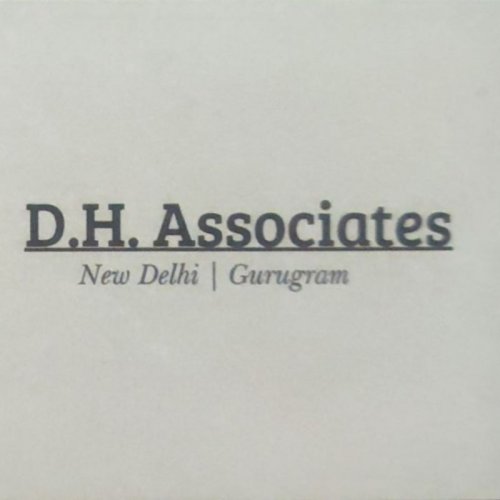Best Child Custody Lawyers in New Delhi
Share your needs with us, get contacted by law firms.
Free. Takes 2 min.
Free Guide to Hiring a Family Lawyer
List of the best lawyers in New Delhi, India
About Child Custody Law in New Delhi, India
Child custody refers to the legal rights and responsibilities of parents or guardians regarding the upbringing and care of their children. In New Delhi, India, child custody laws are primarily governed by the Guardians and Wards Act, 1890, and the Hindu Minority and Guardianship Act, 1956. These laws ensure that the best interests of the child are protected and determine factors such as custody, visitation rights, and child support.
Why You May Need a Lawyer
There are several situations where having a lawyer can be crucial in child custody matters:
- Disputes between parents regarding custody arrangements
- Negotiating or modifying custody agreements
- Cases involving child neglect or abuse
- Interference with visitation rights
- Moving or relocating with a child
Local Laws Overview
In New Delhi, the following key aspects of local laws are relevant to child custody:
- Guardians and Wards Act, 1890: This act allows the court to appoint a guardian for a minor child if it is in their best interest. The court considers factors such as the welfare of the child, the ability of the guardian to provide proper care, and the child's own wishes if they are of a sufficient age.
- Hindu Minority and Guardianship Act, 1956: This act applies to Hindu families and outlines the rules for custody and guardianship of minor children. It considers factors such as the child's age, the parent's conduct, and the child's preference if they are old enough.
Frequently Asked Questions
1. Can a mother automatically get custody of the child in New Delhi?
No, the court determines custody based on the best interests of the child. While the mother is often considered for custody, the court takes into account various factors such as the child's age, health, and overall welfare before making a decision.
2. What factors does the court consider when deciding child custody?
The court considers several factors, including the child's age, health, and preference (if old enough to express it), the ability of each parent to provide a stable and supportive environment, and the parent's previous involvement in the child's upbringing, among others.
3. Can grandparents seek custody of their grandchild in New Delhi?
Yes, grandparents can seek custody of their grandchild if it is in the best interest of the child. The court will consider various factors such as the relationship between the child and the grandparents, the ability of the grandparents to care for the child, and the child's overall welfare.
4. How can I modify an existing custody agreement?
To modify a custody agreement, you will need to file an application with the appropriate court in New Delhi. You must prove a significant change in circumstances since the original custody order and demonstrate that the modification is in the best interest of the child.
5. How long does the child custody process usually take in New Delhi?
The duration of the child custody process can vary depending on the complexity of the case, the willingness of parties to cooperate, and the court's schedule. It is advisable to consult with a lawyer to understand the specific timeline for your case.
Additional Resources
If you require further information or legal assistance regarding child custody in New Delhi, the following resources may be helpful:
- National Commission for Protection of Child Rights (NCPCR): https://ncpcr.gov.in/
- Delhi State Legal Services Authority (DSLSA): http://dslsa.org/
- Childline India Foundation: 1098 (Toll-free helpline for child-related issues)
Next Steps
If you require legal assistance or advice regarding child custody in New Delhi, it is advisable to consult with an experienced family lawyer. They can guide you through the legal process, help protect your rights, and ensure the best interests of your child are upheld.
Lawzana helps you find the best lawyers and law firms in New Delhi through a curated and pre-screened list of qualified legal professionals. Our platform offers rankings and detailed profiles of attorneys and law firms, allowing you to compare based on practice areas, including Child Custody, experience, and client feedback.
Each profile includes a description of the firm's areas of practice, client reviews, team members and partners, year of establishment, spoken languages, office locations, contact information, social media presence, and any published articles or resources. Most firms on our platform speak English and are experienced in both local and international legal matters.
Get a quote from top-rated law firms in New Delhi, India — quickly, securely, and without unnecessary hassle.
Disclaimer:
The information provided on this page is for general informational purposes only and does not constitute legal advice. While we strive to ensure the accuracy and relevance of the content, legal information may change over time, and interpretations of the law can vary. You should always consult with a qualified legal professional for advice specific to your situation.
We disclaim all liability for actions taken or not taken based on the content of this page. If you believe any information is incorrect or outdated, please contact us, and we will review and update it where appropriate.

















